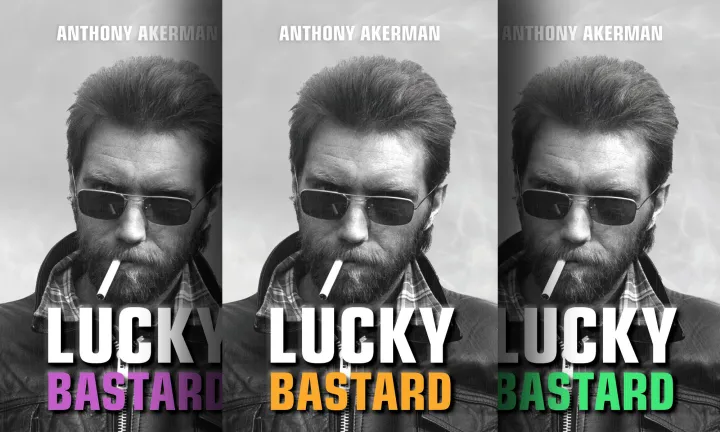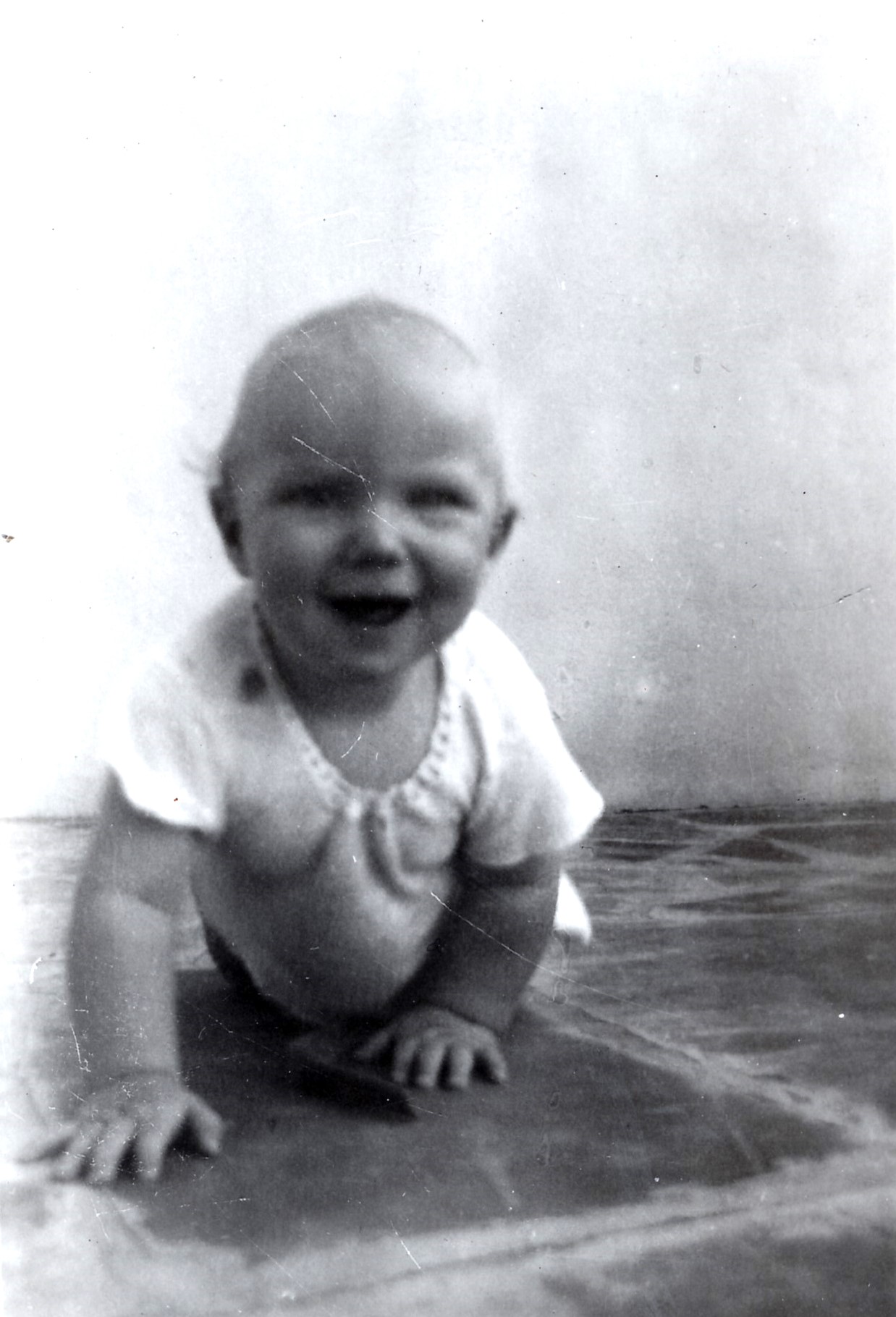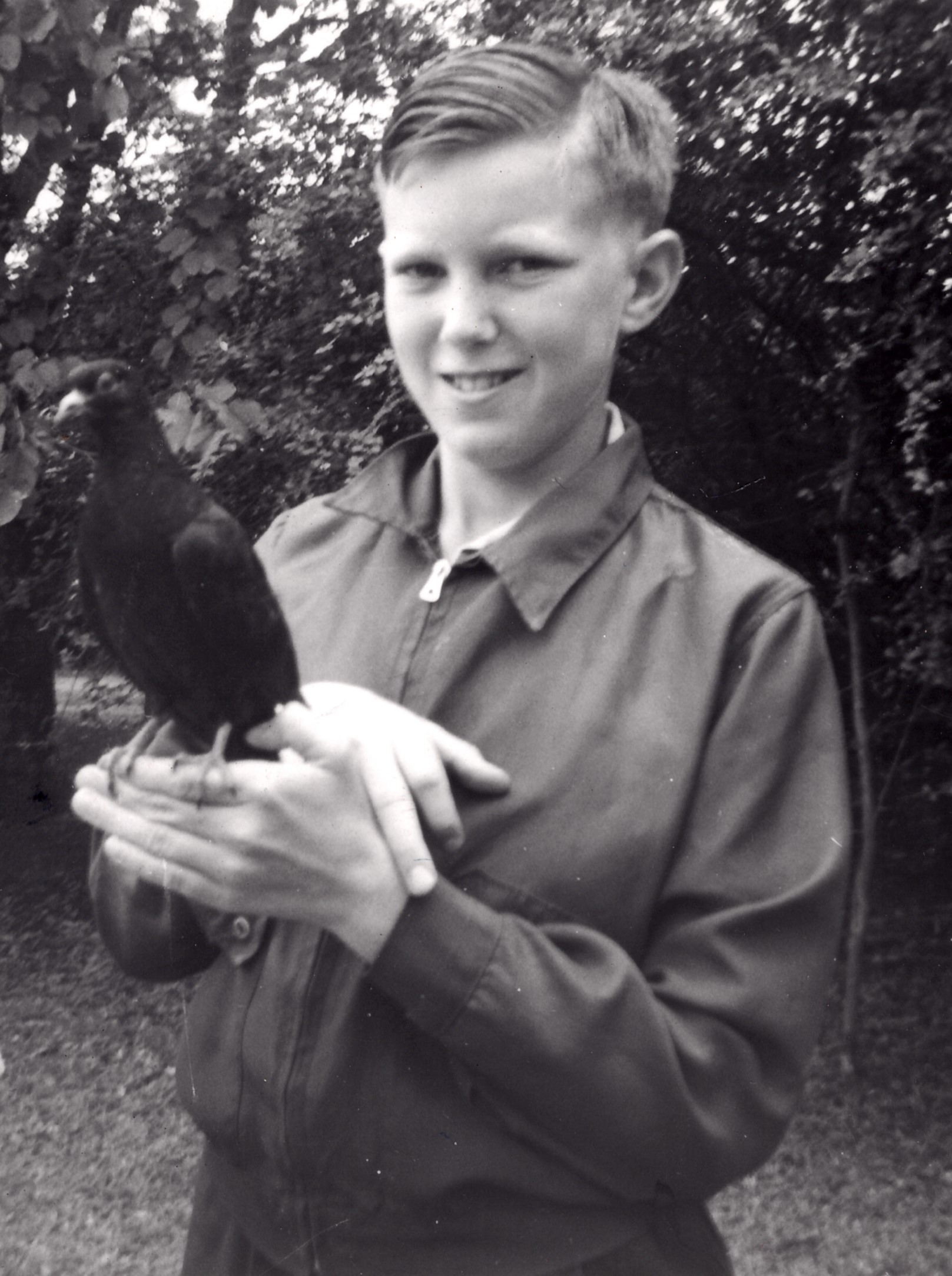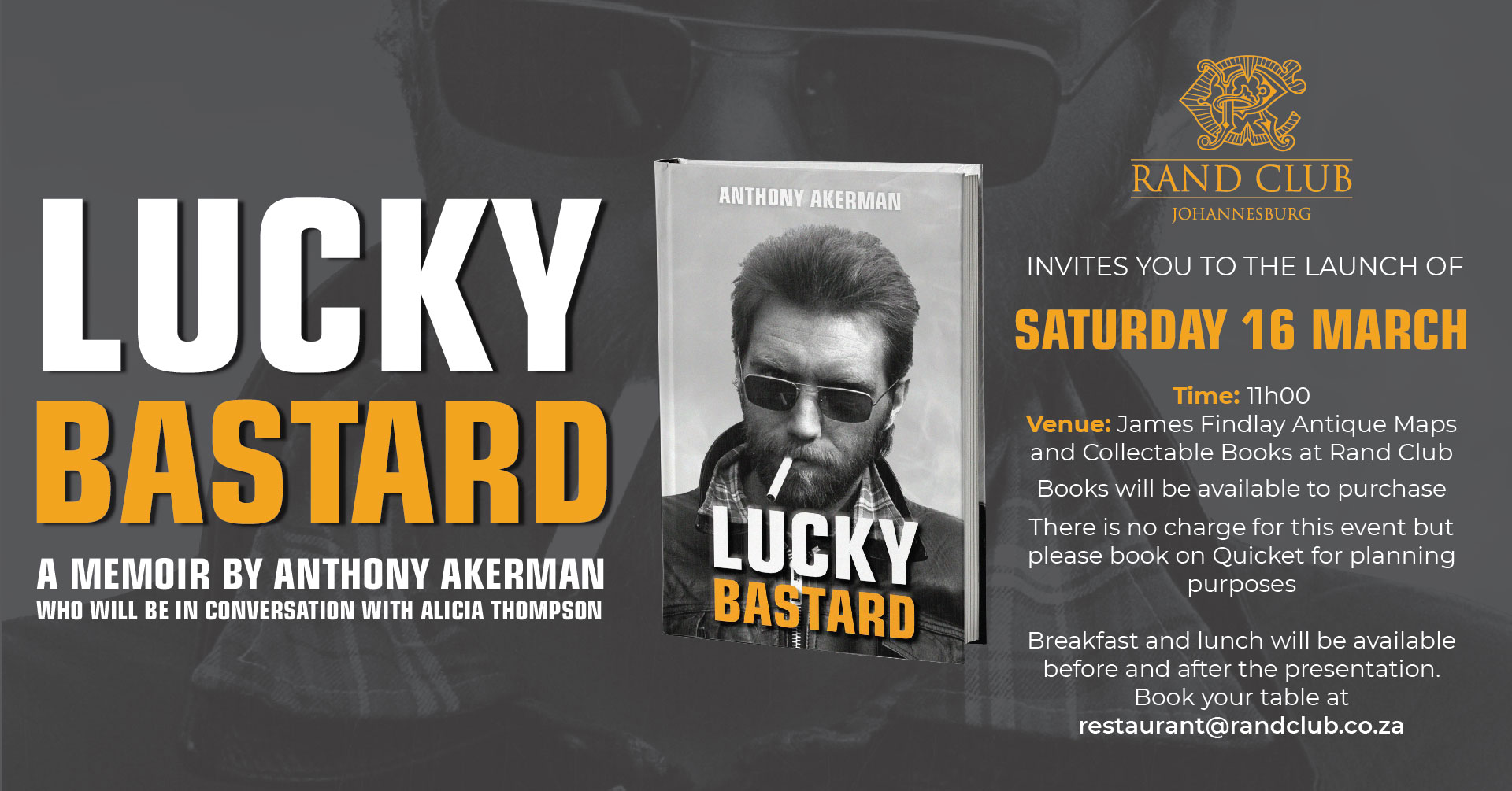BOOK EXCERPT
Anthony Akerman’s memoir: ‘Lucky Bastard’

When he was 10 years old, the author was told he’d been adopted. It was a seismic event that turned his world upside down. Read an excerpt of the book.
Nobody was who he thought they were. His mother wasn’t his mother; his father wasn’t his father; his sister wasn’t his sister; his grandparents weren’t his grandparents; he wasn’t related to any of his relatives; he didn’t know where he came from or who he was.
This was at a time when adoption was shrouded in secrecy and shame. Birth mothers and adoptive parents signed non-disclosure agreements. Adoption records were sealed.
In Lucky Bastard Anthony Akerman takes the reader on his quest to find out where he came from.
***
Prologue

First surviving photo of Anthony Akerman. Image: Supplied by the author
She was dazed and bereft as she closed the street door. She’d made friends here and had celebrated her twenty-first birthday with young women in a similar predicament. But what had happened here would remain a secret although, unavoidably, some people did know. She picked up her suitcase and, still unaccustomed to the humidity, started out along 5th Avenue towards Mitchell Road. The light sea breeze made her thin cotton dress cling to her body. She’d regained her figure, but not her confidence or self-respect.
When she reached the bus stop, she asked a stranger which trolley bus she should take. She put down her suitcase and waited, clutching her return ticket to a distant city. It had been paid for by the man who, had things been different, would have been her father-in-law. Did he ever spare a thought for the grandchild he’d never see? And what about the baby’s father? He must have calculated he was a father by now. Did that make him feel different? Did he wonder whether his first-born child was a boy or a girl? When he later married and held a baby in his arms, would he be able to suppress the thought that his child already had an older brother or sister?
Mitchell Road ran alongside Greyville Racecourse where, a few months earlier, Milesia Pride had won the July Handicap. The trolley bus crossed Alice Street and she alighted at the stop in front of the station. After having been cut off from the world for so long, the pedestrians and traffic in Soldiers Way felt dauntingly present.
She walked across the station concourse and found the right platform. A helpful conductor showed her to her compartment and put her suitcase on the overhead rack. She sat down next to the window, opened her purse and took out a few black-and-white photos of a baby boy. Perhaps she should have thrown them away because she was expected to put the past behind her and pick up the pieces of her life as if nothing had ever happened.
Oedipus was also adopted

“The Age of Innocence before I heard I was adopted”. Image: Supplied by the author
So who are my real parents?
We’re your real parents, Tony.
I mean, who was the lady who had me in her tummy?
We don’t know who she was.
Why didn’t she want me?
Of course, she wanted you.
Then why did she give me away?
Because she couldn’t keep you.
Why?
She just couldn’t.
Why not?
Because she probably wasn’t married.
So you don’t know anything?
No, we don’t.
You swear?
Yes.
Does anybody else know?
It’s a secret, Tony, we had to sign papers.
I mean, does anybody else know I’m adopted?
Well, of course, Mopsie and Granddad know.
And Uncle Cedric and them?
Yes, they know.
And the children? Peter and everybody?
No, they don’t know.
Well, promise never to tell them.
We promise.
Ever.
I said we promise.
I don’t want them to think I’m not as good as them. So it’s got to be a secret.
This would have suited Mum and Dad. Respectability and reputation were the watchwords of their generation and they happily kept the potentially scandalous secret. Anyway, it wasn’t the “done thing” to mention premarital sex, extramarital sex, divorce, infertility, adoption, financial problems or suicide. If I kept it a secret, if nobody ever found out, I could just carry on as if I hadn’t been told anything. Then my life wouldn’t have to change.
Except I had been told. I couldn’t unhear it. It had turned my life upside down. It had changed the way I looked at myself. I no longer knew who I was.
But I was able to make sense of some things. I understood why I didn’t look like Mum and Dad. I understood why Gill and I didn’t look like brother and sister. I understood why we were all so different.
At ten, I didn’t speculate about who my biological parents were. Mum and Dad didn’t seem to know, so how would I ever find out? It was a secret. The lady who’d had me in her tummy gave me away, so – whatever Dad had said – she obviously didn’t like me and didn’t want me. I also didn’t wonder why Mum and Dad couldn’t have their own babies and I didn’t ask.
This happened during my most stimulating year at school, when Ted Brien was my class teacher in Standard IV/a. Looking over my reports, it’s clear this seismic event didn’t adversely influence my academic results. Ted Brien chose two plays for us to study that year: Oedipus Rex and King Lear. In both plays, there’s the bloody spectacle of eyes being gouged out and that obviously appealed to the ghoulishness in little boys. We read the Sophocles play in class and Ted Brien guided us through some classical mythology and, precocious though we were, I don’t recall him referencing Freud and the Oedipus Complex.
Oedipus consulted the Delphic Oracle and heard the prophecy predicting he’d kill his father and marry his mother, which is precisely why he left his parents’ home in Corinth. But he didn’t know Laius was his father and Jocasta his mother or he’d never have killed the former and married the latter. It’s only when the Messenger and the Shepherd tell him at the end of the play that he wasn’t the son of Polybus and Merope, but of Laius and Jocasta, that he realises who he really is and understands the enormity of his actions. I was as appalled as Oedipus. And then it struck me: Oedipus was also adopted! He did what he did because he didn’t know who he was. Since then, I’ve viewed the play as a cautionary tale for adoptees.
By the time we’d finished reading Oedipus Rex, I started wondering who my real parents were and where they were. Imagine if I killed my father and married my mother without realising it. I wasn’t planning to kill anyone and if I got married – something that also held little appeal – why would I marry somebody as old as Mum? It did make me wonder what Oedipus was thinking. But now my biological mother and father had become real. If they weren’t dead, they had to be somewhere. Did I look like them? Would I recognise them if I saw them? I looked in the mirror and wondered if they looked like me. I’d always known I’d been born in Durban. But I’d never asked myself how I could have been born in Durban when Mum and Dad were living 450 miles away in Fort Beaufort – but now I knew my real mother had been in Durban when she had me. Maybe she and my father still lived there. What if I walked right past them in West Street when I went window shopping with Mum and Dad on a Saturday afternoon? What if I’d seen them without knowing it? Would I recognise my real father if he was standing next to me when I bought an Eskimo Pie? Would my real mother recognise me if she saw me looking at toys in the window display of Greenacres? Even if they weren’t married to each other, they could have had other children. What if I had a brother at Highbury and just didn’t know it? I started looking for myself in other people’s faces and never stopped.
I needed to create origin stories to give myself a history and a sense of belonging in the world. Was my mother a Ruritanian Princess and my father a commoner? Was she forced to give me away because I’d otherwise be next in line to the throne? Or maybe they were Afrikaans and that’s why I was good at Afrikaans – poor whites who had so many children they couldn’t afford to feed an extra mouth. Or was she just a horrible person who didn’t care? The story I preferred was that they wanted to keep me, but when they were driving over a level crossing their car was hit by a train and they were both killed. I was loved, I was wanted, but tragedy struck, and Jesus had sent angels to protect me in the back seat because he had a plan for me. It wasn’t ideal, but how was being an adopted child ever going to be ideal?
We opened our editions of The New Clarendon Shakespeare’s King Lear and picked up where we’d left off previously. A boy with a less monotonous declamatory style was asked to read Edmund’s soliloquy at the beginning of Act I Scene II and when he reached the words, “Why bastard? Wherefore base?”, there were audible sniggers. A hand shot up. “Please sir, isn’t that swearing?” Ted Brien told us a bastard was somebody who was illegitimate, which meant their parents weren’t married when they were born. Gloucester wasn’t married to Edmund’s mother. Bastard was just another word for illegitimate, but it had become a swear word and we should only use it when we were talking about King Lear. Why had it become a swear word? Because – in Shakespeare’s day – people believed bastards were villains. And they were right! Look at what Edmund did in King Lear. Were all bastards bad? Was I destined to do terrible things? As much as I wanted to believe my parents were married and died when a train hit them, Dad had said they probably weren’t married. There was no getting around it; I was a bastard and I’d been cursed. DM
Should you wish to order, Lucky Bastard by Anthony Akerman, please complete the form here. Email the author directly on [email protected] if you experience difficulty logging onto the Google order form. The book is also available at Love Books in Melville, Johannesburg at the retail price of R330 (excluding postage costs if ordered). You can register for the book launch at Rand Club in Johannesburg on 16 March.




















 Become an Insider
Become an Insider
Comments - Please login in order to comment.